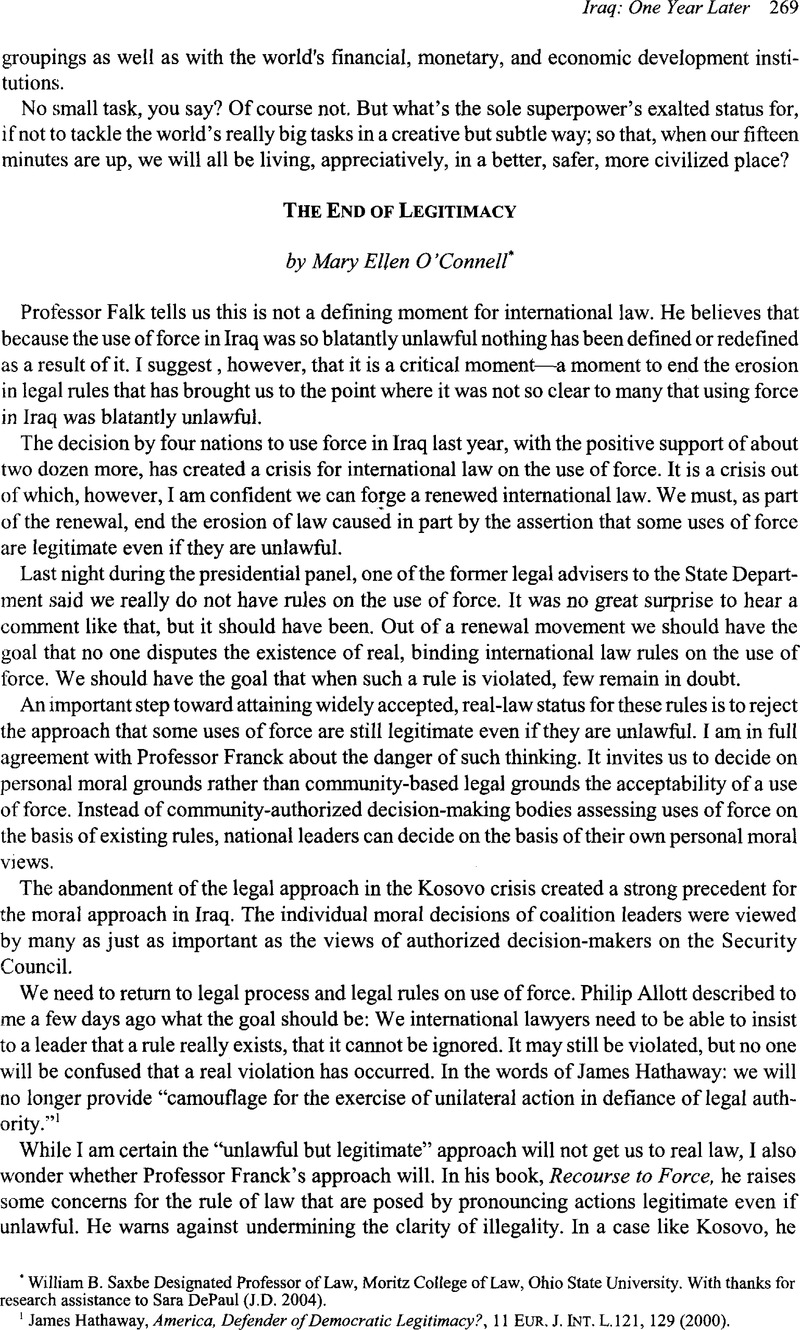Article contents
The End of Legitimacy
Published online by Cambridge University Press: 28 February 2017
Abstract

- Type
- Iraq: One Year Later
- Information
- Copyright
- Copyright © American Society of International Law 2004
References
1 Hathaway, James, America, Defender of Democratic Legitimacy?, 11 Eur. J. Int. L. 121, 129 (2000)CrossRefGoogle Scholar.
2 International Law Commission’s Draft Articles on Responsibility of States for Internationally Wrongful Acts, art. 25, in Report of the International Law Commission on the Work of Its Fifty-third Session, UN GAOR, 56th Sess., Supp. No. 10, at 43, UN Doc. A/56/10 (2001), available at <http://www.un.org/law/ilc>. The defense or excuse of necessity, however, does not apply to the use of force if the force is more than de minimis. That defense did apply to the 1967 British bombing of the Torrey Canyon on the high seas. The tanker threatened serious oil damage to the British coast. James Crawford, The International Law Commission’S Articles on State Responsibility: Introduction, Text, And Commentaries, 181 (2002). Uses of three above the de minimis threshold must be in self-defense or have Security Council authorization.
3 International Law commission’s Draft Articles on Responsibility of States for Internationally Wrongful Acts, arts. 22, 49-54, supra note 2.
4 Koskenniemi, Martti, “The Lady Doth Protest Too Much”, Kosovo and the Turn to Ethics in International Law, 65 Mod. L. Rev. 159 (2002)CrossRefGoogle Scholar.
5 Hathaway, supra note 1, at 128.
- 1
- Cited by


